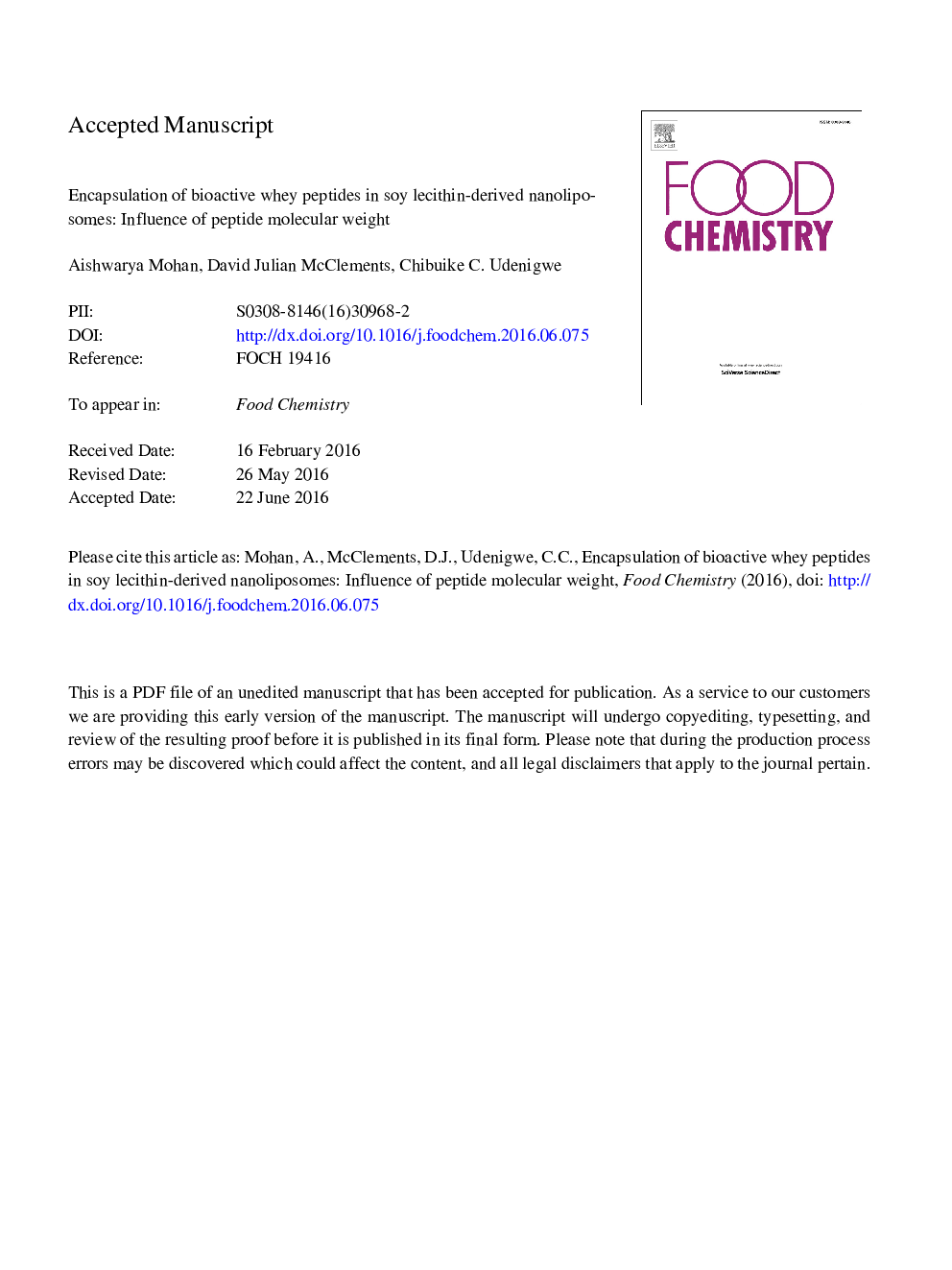| Article ID | Journal | Published Year | Pages | File Type |
|---|---|---|---|---|
| 7587192 | Food Chemistry | 2016 | 25 Pages |
Abstract
Encapsulation of peptides can be used to enhance their stability, delivery and bioavailability. This study focused on the effect of the molecular weight range of whey peptides on their encapsulation within soy lecithin-derived nanoliposomes. Peptide molecular weight did not have a major impact on encapsulation efficiency or liposome size. However, it influenced peptide distribution amongst the surface, core, and bilayer regions of the liposomes, as determined by electrical charge (ζ-potential) and FTIR analysis. The liposome ζ-potential depended on peptide molecular weight, suggesting that the peptide charged groups were in different locations relative to the liposome surfaces. FTIR analysis indicated that the least hydrophobic peptide fractions interacted more strongly with choline on the liposome surfaces. The results suggested that the peptides were unequally distributed within the liposomes, even at the same encapsulation efficiency. These findings are important for designing delivery systems for commercial production of encapsulated peptides with improved functional attributes.
Related Topics
Physical Sciences and Engineering
Chemistry
Analytical Chemistry
Authors
Aishwarya Mohan, David Julian McClements, Chibuike C. Udenigwe,
